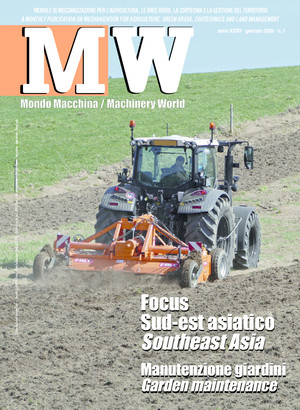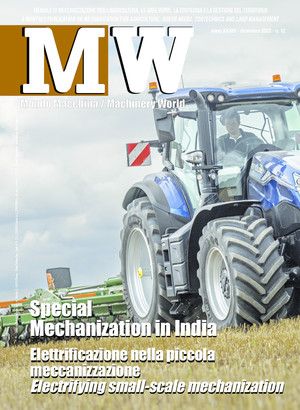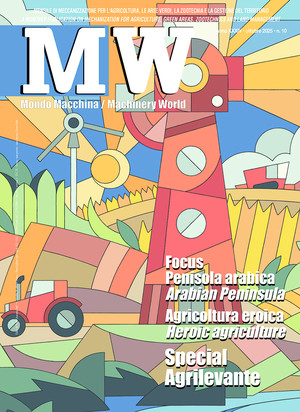
European Green Deal, Italian agriculture is moving ahead
Healthy food, reduction climate-changing emissions and pesticides: Italian agriculture is ready to take up the challenge of the European Green Deal, but economic and environmental sustainability must go together. This according to a report from Fieragricola - Nomisma Observatory presented on the eve of the Verona fair
Italian agriculture is ready to take up the challenge of the Green Deal launched in December by the President of the EU Commission, Ursula Von Der Leyen, but environmental sustainability cannot be separated from the agricultural activities’ economic sustainability. In fact, if it is true that our country is at the forefront in Europe on many of the issues underlying the programmatic objectives declared by the Commission, it is equally true that Italian primary companies are still penalized by the stagnation of agricultural incomes. An all-Italian phenomenon, since in Europe agricultural incomes grew by 6% on average, with France and Spain reaching double figures. This is the scenario outlined by the Fieragricola-Nomisma Observatory report called “Italian agriculture facing the challenge of the European Green Deal”. Edited by Denis Pantini, Nomisma manager for the agri-food sector, the report was presented in Rome on the occasion of Fieragricola’s 114th edition press conference.
Agricultural production and healthy food: Italy is at the top. On the production side, Italy can boast excellent positions. As a matter of fact, while our agriculture is first in Europe for added value (32.2 billion euros) and second - behind France but ahead of Germany - for production value (56.7 billion), the food industry is in third place placed both as regards turnover (138.8 billion), and added value. Less flattering - highlights the Nomisma’s report - the performance relating to agricultural and food exports, in which the country system surrenders to France and Germany. But the purely quantitative data - the value of production - is not the only plus of the Italian agricultural system, whose real highlight is the quality of its production. Made in Italy, underlines the Nomisma report, has the highest percentages of residue-free products. Italy is also the most “bio” country in Europe as regards the used agricultural area and the impact of organic crops on arable land and permanent crops. The “green” vocation of Italian farmers, emerges strongly from the data relating to the use of agrochemicals and fertilizers, whose consumption in some cases has halved (insecticides and fungicides). But this is not the only primacy of the Italian agriculture, because our primary sector is at the forefront of the “old continent” also for what concerns climate-altering missions. In this regard, the Nomisma report shows that in the last twenty years the greenhouse gases produced by the primary sector have significantly reduced, above all CO2, which went from 35 million tons in 1997 to 31 million in 2107. Today - the research company specifies - agriculture produces 7% of emissions, i.e. a share that is three percentage points lower than the EU average (10%).
Water resources, soil consumption, erosion, and profitability. The critical aspects. There are many points of excellence in our primary sector, even if there are some grey zones. Italy, in fact, not only occupies the last positions in Europe as regards the ratio between withdrawals and water resources (half of consumption is for agricultural use) but is also facing erosion phenomena that often entail very high social and economic costs. Soil consumption, which has grown at a dizzying pace in the last thirty years (+ 50% compared to 1989) contributes to aggravating these phenomena, reaching a record share of 2.3 million hectares in 2018. In this context, farmers perform not only a productive function but above all the important function of safeguarding the territory, as proven by the attention to environmental protection and by the adoption of increasingly environmentally friendly agricultural practices. “However - observed Pantini - environmental sustainability cannot be disconnected from economic sustainability, without which the agricultural activity itself cannot exist”. This subject is one of the major critical issues of the primary sector since Italian producers are unable to “capitalize” on the numerous excellences of our agriculture. In fact, in the last five years, the EU’s agricultural income has grown by an average of 6%, with peaks of 11% in Spain and France, while in Italy it has remained at the stake, even recording a drop of 1%. In short, the numbers show that Italy has everything it takes to take up and win the challenge launched by the European Green Deal, but to do so - this says the Nomisma report - it is not possible to ignore a revitalization of the profitability of the primary sector.








